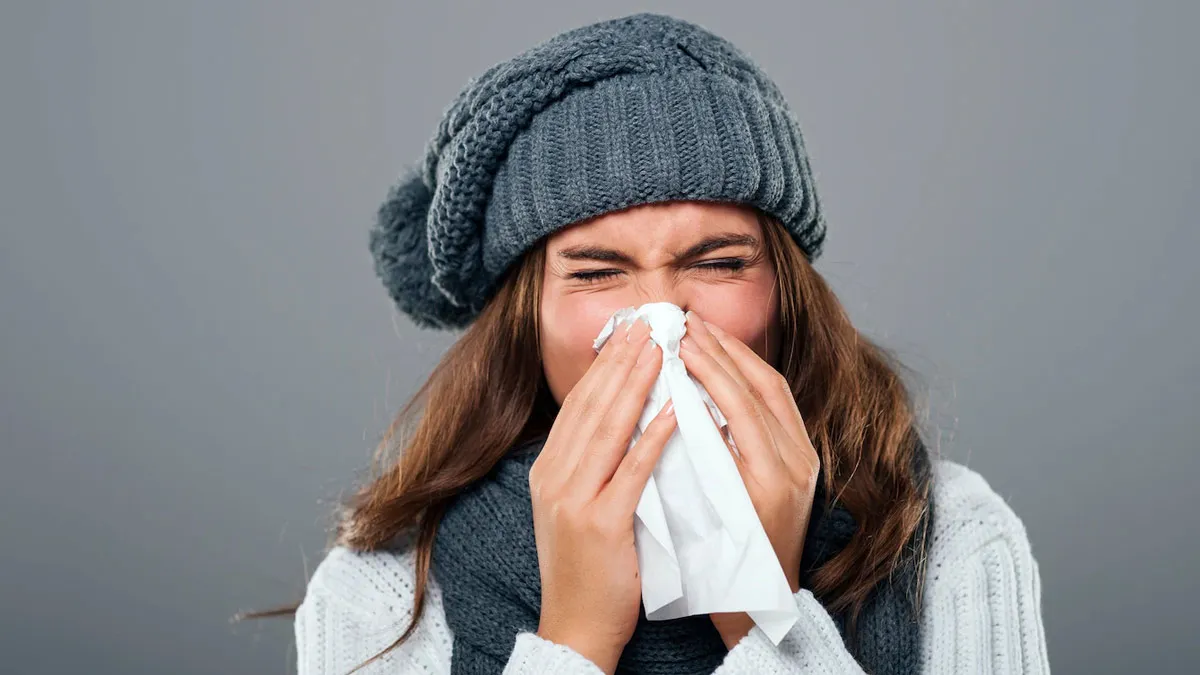
A stuffy nose, runny eyes, and sore throat are a few symptoms that can hit at any time of the year. So how do you know whether you have a seasonal cold or an allergy? Although they may seem similar at first, the causes, length, and treatment strategies are completely different. Therefore, knowing the differences can help you to control symptoms and spare yourself unwarranted distress.
Table of Content:-
The editorial team of Onlymyhealth reached out to Dr Bhumesh Tyagi, Consultant, General Medicine and Physician, Shardacare, Health City, Noida, and he explained how to differentiate and manage seasonal cold and allergy. Read ahead to know everything he shared with us.
What Causes Colds vs Allergies?
Seasonal colds result from virus infections of the respiratory tract. “They are highly contagious through coughing, sneezing, and touching surfaces and therefore frequent during colder seasons,” highlighted Dr Srivastav.
However, allergies are provoked by the body's immune response to substances such as pollen, dust mites, pet dander or mould. They can occur in spring and fall, but can happen at any time, depending on the allergen.
Also Read: Expert Shares You Should Have 1 Fruit Everyday At 4pm, Here's Why

How to Tell the Difference: Expert Shares Key Symptoms
Dr Tyagi noted that both cold and allergies share similarities, but if we deep dive, you can tell several differences. According to him a few of them include:
1. Duration
Cold: Typically three to 10 days.
Allergy: Weeks or months, depending on exposure.
2. Onset
Cold: Slow onset with fatigue and body discomfort.
Allergy: Sudden onset, often when exposed.
3. Fever & Body Aches
Cold: Commonly experiences mild fever and aches.
Allergy: Rare to have fever and body pain.
4. Nasal Discharge
Cold: Thicker, yellow or green mucus.
Allergy: Watery, clear, and thin.
5. Itching
Cold: Rarely causes itching eyes, nose, or throat.
Allergy: Itching is a classic warning sign, particularly around the eyes and nose.
6. Sneezing
Cold: Occasional, less frequent.
Allergy: Repetitive and frequent.
Also Read: Did You Know Your Pillowcase Impacts Hair Health? Here's How To Get Better Hair Overnight

How to Manage a Cold
“There is no cure for the common cold, but you can relieve symptoms,” shared Dr Tyagi. Here’s how you can manage it:
- Stay hydrated with warm tea, soups, and water.
- Rest well to support immune function.
- Use nasal sprays with saline to clear congestion.
- Over-The-Counter (OTC) medications for the cold might ease discomfort.
- Steam inhalation and honey are effective in soothing a sore throat and congested nose.
The majority of colds will pass on their own, but see a doctor if symptoms last more than 10 days or intensify.
How to Manage an Allergy
Unlike colds, allergies require a trigger-oriented strategy. These include:
- Avoidance of allergens: Close windows during periods of high pollen, clean dusty areas, and use air purifiers.
- Medications: Antihistamines, nasal corticosteroids, and decongestants can manage symptoms.
- Cold compresses: Ease congested, itchy eyes.
- Shower after outdoor exposure: This removes pollen from skin and hair.
If symptoms persist or affect breathing, an allergist may recommend immunotherapy.
Bottomline
Colds are here today and gone tomorrow with infection symptoms, but allergies persist with itching, sneezing, and watery discharge. Experts share that knowing the difference means treating each properly and getting relief sooner.
Also watch this video
FAQ
1. Can allergies turn into a cold?
No, allergies don't lead to viral infections, but long-term irritation leaves you more susceptible to illness.2. Do allergies make you have sore throats?
Yes, allergic postnasal drip can cause throat soreness or irritation.3. When do I need to be tested for allergies?
When symptoms last for weeks, recur seasonally, or don't respond to OTC medications, allergy testing can determine the inciting factors.
How we keep this article up to date:
We work with experts and keep a close eye on the latest in health and wellness. Whenever there is a new research or helpful information, we update our articles with accurate and useful advice.
Current Version
Oct 16, 2025 12:16 IST
Modified By : Tanya SrivastavaOct 16, 2025 12:16 IST
Published By : Tanya Srivastava